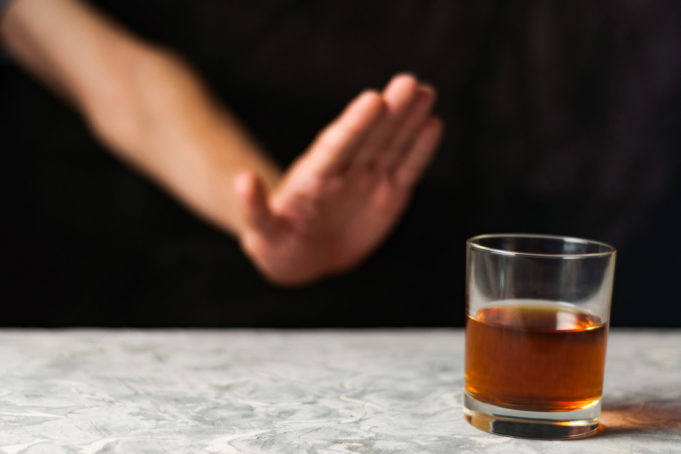Welcome to the Sober Buffet. First, a heads-up: This is an advice column by a writer who is really familiar with alcohol addiction and is the very best of friends with sobriety. A Dear Abby for alcoholics. The writer is not a licensed professional. He or she is a professional fuckup, but he or she is not a doctor. The answers provided are based on this writer’s life in the trenches with dipsomania. If you also are sober and have a different story to share than his or her responses, please leave a comment. This is a safe community space for anyone to answer these questions based on experience. The only difference is that this writer somehow convinced the Fort Worth Weekly to pay him to jaw about his.
How much weight did you lose when you got sober, and how long did it take?
Ironically, I gained weight. For a while, it was confusing because everyone I knew who got sober lost a lot of weight, and here I was putting on weight. (I gained 40 pounds at my one-year sobriety mark.) It took some research, and I learned that alcohol has so much sugar that when I quit cold turkey, my body was in shock, and I gained a nasty sweet tooth. I was ordering cookie cakes and cupcakes two, three times a week, and that was my dinner. My diet was also inferior, and I was in grad school, so I wasn’t moving around much. I finally cut out diet sodas, junk food, and fast food. I do intermittent fasting (only eat from noon to 6 p.m.), have a smoothie full of vegetables at noon, and usually eat chicken and broccoli for dinner or something plant-based. I started no-shame power-walking three miles a day, and that’s helped tremendously with my energy, weight loss, and mental health. I’m still a fat ass, but that’s only because I discovered a month or so ago that if I don’t get my health in order, I’m not going to live to see 40.
Simply, when you get sober, if you have a sweet tooth, fight those cravings or give yourself a little break and maybe splurge once a week. That’s what I should have done. (Who eats an 18-inch cookie cake for dinner? This writer.)
How did your family take it when you told them you got sober?
My family knows I’ve been struggling with trying to get sober for a decade. My problems started in 2010 after an intense breakup. Pretty cliché, but it’s the truth. For a while, I hid my alcohol abuse and told my family I was sober. I was living on the West Coast, and there was no way for them to know but by my word that I wasn’t drinking. I lied because I feared being ostracized. I tried to “control” my drinking — that cliché “I’ll just have one drink.” Alcoholics cannot have just one drink. I eventually published on social media a confession of sorts about being an alcoholic. I did this so I could hold myself accountable to everyone around me and let others know that “You’re not alone, and it’s OK to surrender and get sober. You’re not weird or a bad person for having an addiction to alcohol.” Publishing about needing to get sober, then receiving proper treatment and staying sober, has led to this column.
Why did you get sober?
This is something that requires detail. The short answer is: If I wanted to keep the friends and family I had left in my life and prolong my life, I needed to put down the sauce. If alcohol is a usual suspect in ruined relationships, that’s when drinking is a problem, and it was a problem for a long time. I just didn’t want to surrender to it. I thought I could handle drinking, but I couldn’t. Getting sober was required. The last words to me from one of my caretakers (fancy word for “parent”) before they passed away suddenly were asking me to get help. I didn’t do so until a little over a year after their death — losing a parent for the first time is so shocking, your life stops, everything goes numb. I went down a self-destruction path and didn’t realize how bad it got for a long time. I finally addressed my alcoholism and the chaos it was enveloping me in and let it go in 2018. I have not looked back. I still have my share of arguments and frustrations. However, I now have a better handle on how I act and can assess a challenging situation.
If you have any questions for the Sober Buffet, please email Weekly editor Anthony Mariani at anthony@fwweekly.com or leave a comment online.












